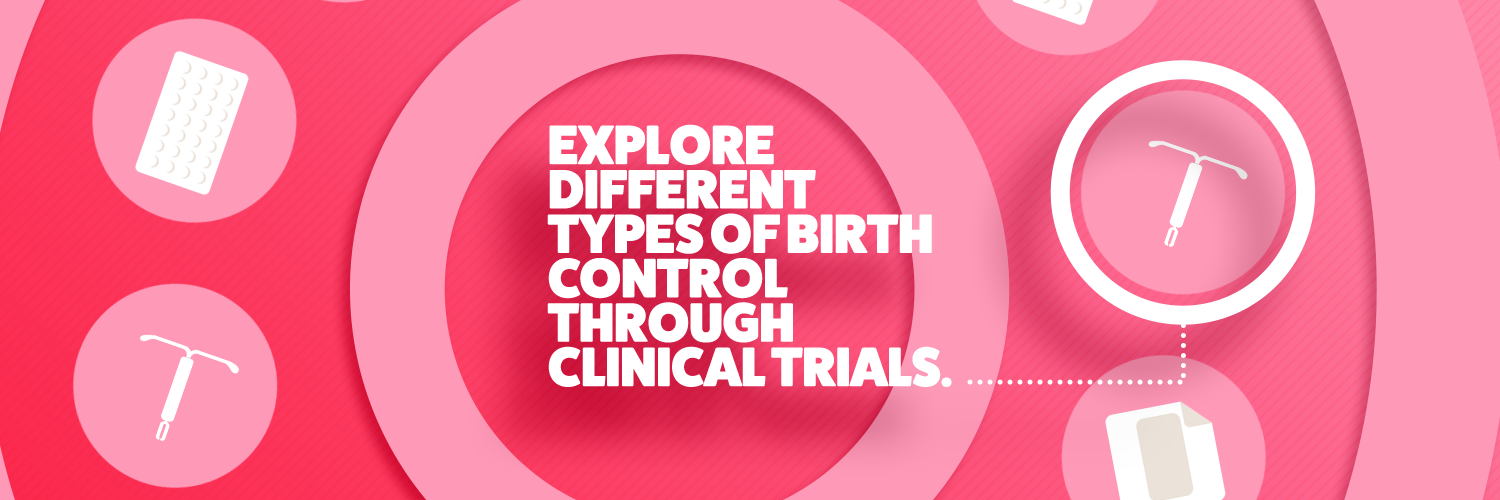Birth Control
Birth Control Research
Here at Seattle Clinical Research Center, we have several enrolling birth control studies. Our studies are diverse in method of birth control and are run for various reasons. Because of that, it provides the perfect opportunity to find the best birth control option for you.
Birth control, also referred to as contraception, is when you use a device, medication, or method to prevent pregnancy. With so many options available, you may be wondering how to choose the right one for you? While this depends on several factors, knowing more about each option can make your decision easier.
Short-Acting Hormonal Methods are contraceptives your doctor prescribes that must be taken or replaced daily, weekly, or monthly. To maintain maximum efficacy, it is important to stick to a strict schedule. Short-acting birth control methods prevent the sperm from reaching the egg by thickening the mucus around the cervix. They also stop ovulation by preventing the ovaries from releasing eggs.
- The Pill / Mini Pill: Taken Daily
- The Patch: Replaced Weekly
- The Shot: Every 3 Months
- Vaginal Ring: Replaced Once a Month
Long-Acting Reversible Contraceptives are forms of contraception that your doctor inserts one time and can last up to 12 years depending on the type. Non-hormonal IUDs use copper to prevent pregnancy by causing inflammation in the uterus, so the sperm cells can’t swim to an egg and fertilize it. Hormonal IUDs make the mucus on your cervix thicker, blocking the sperm cells from an egg. The hormones in the IUD may also stop eggs from even leaving your ovaries. Hormonal implants work the same as a hormonal IUD, except they are matchstick-sized rods inserted into the upper arm.
- Intrauterine Device (IUD): Lasts Up To 3-12 Years
- Hormonal Implant: Lasts Up To 5 Years
How Does It Work?
Birth control is most often used to prevent pregnancy. It is important to look at the statistics behind each form of contraceptive to understand which option may work better for you.
You often see an effectiveness percentage when looking at birth control. This percentage is calculated from the number of women out of 100 that did not get pregnant after 1 year of perfect use. Keep in mind, perfect use does not mean typical use.
To learn more, watch the video for an in depth explanation.



